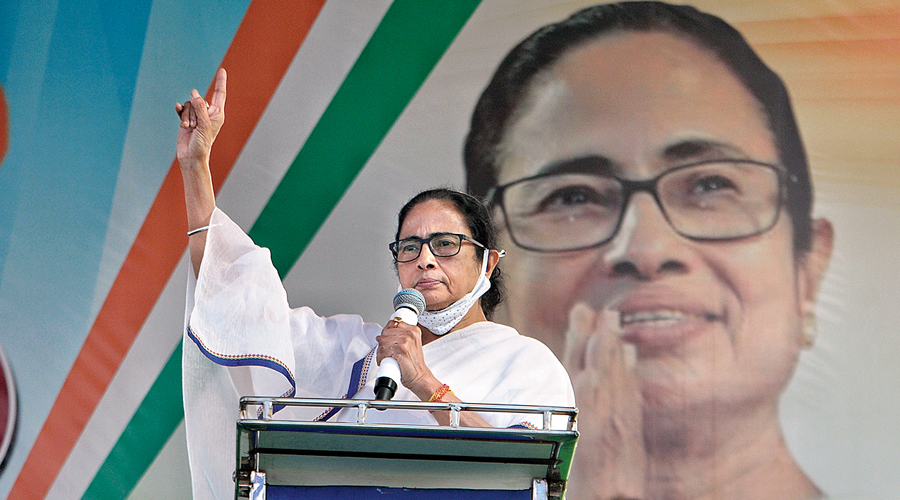Chief minister Mamata Banerjee wrote to the Prime Minister on Thursday complaining that the Union education ministry “has put several restrictions in respect of holding online/virtual international conferences/ training even for state aided universities, without consulting the state governments”.
As education is on the concurrent list of the Constitution, Mamata wrote to Narendra Modi, “any non consultation by the Government of India, before issuing any such instructions to the state governments, will be against the spirit of federal structure enshrined in the Indian Constitution”.
The education ministry’s revised guidelines of January 15 on “online/ virtual conferences/ seminars/ training, etc”, have sparked concerns across academia.
The guidelines say: “Ministry or Department, PSUs, Central Educational Institutions, Public Funded Universities or an organisation owned and controlled by the Government of India or State Government or Union Territory should take approval of its Administrative Secretary for the (virtual) event as well as for the list of participants.”
Mamata wrote: “The Union ministry of education office memorandum has put several restrictions... without consulting the state governments.”
The chief minister sent the letter on a day The Telegraph reported that IIT Guwahati had made permission mandatory for faculty members to participate in all types of webinars, going a step further from the Centre’s order that had covered only international online seminars.
Mamata wrote: “Our universities must enjoy the highest possible degree of self-governance and freedom to conduct their educational activities in regular interaction with their counterparts abroad. Knowledge is neither created by nor belongs to any single country or community.”
She mentioned in the letter that “reasonable restrictions and regulations” are understandable. “However restrictions imposed… further highlights the intention of (the) Government of India towards centralization of (the) Higher Education System in our Country,” she wrote.
The central guidelines say that while giving approval for online/ virtual conferences/ seminars/ training, the ministry should ensure that the subject matter for online events is not related to the security of the state, border, states in the Northeast, the Union Territories of Jammu and Kashmir and Ladakh, or any other states which are clearly related to India’s internal matters.
The guidelines say “appropriate level of scrutiny to be exercised to identify the nature and sensitivity of data or content of the presentations or the information to be shared by an Indian delegation”.
Mamata wrote: “In other words, is it not an attempt of the central government to introduce thought policing in educational institutions by trying to impose ‘ONE NATION, ONE THOUGHT’? Such communication will only be seen as an example of contempt for constitutional powers of the states….
“It may be pertinent to mention here that the State Governments are duly empowered under law to deal with any act committed by any educational institution which violates any law or contrary to the interest of National Security.”
According to her, digital platforms have become a boon for teachers and students in remote areas, small towns and also in cities to get the benefit of interactions with scholars around the world.
The letter ends with an appeal to the Prime Minister that he issues a directive to the education ministry and advises the ministry to hold discussions with the state governments “before issuing any such directions/ orders, in future”.











